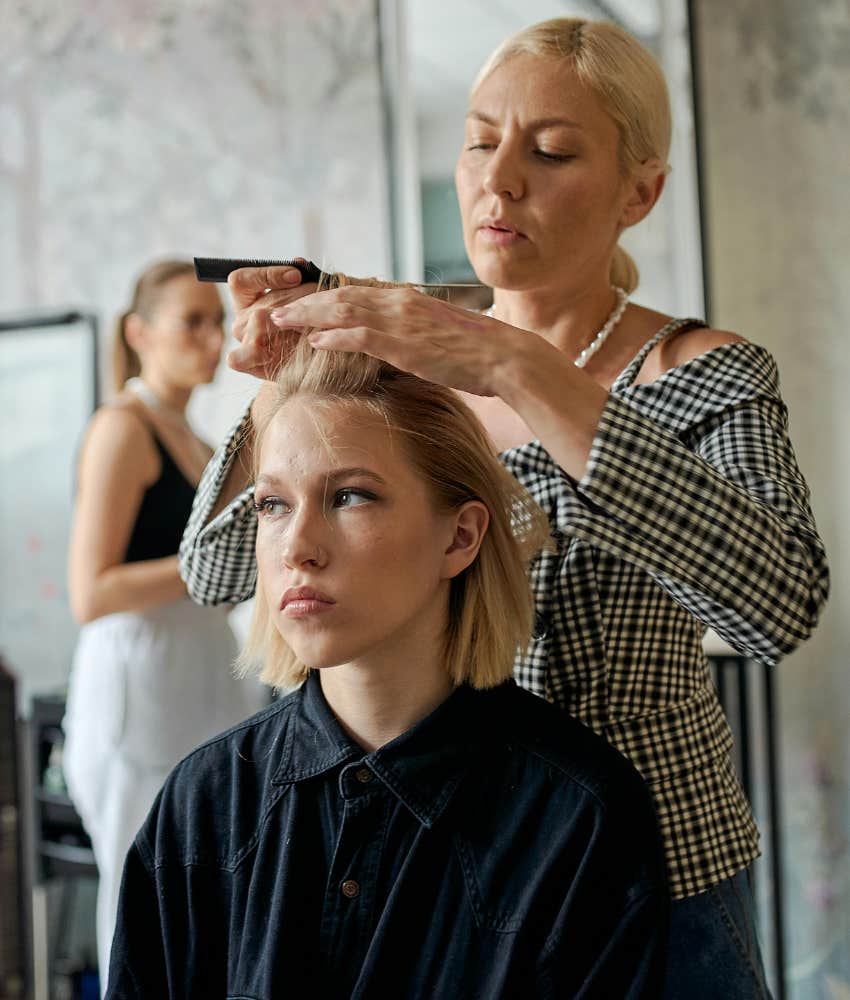Wife Wishes She Could Get A Pixie Cut But Her Husband Said She Has To Keep It Long To Stay Married — ‘He’s The Man So I Keep It Long To Please Him’
A woman's hair is always her choice.
 Spencer Selover / Pexels
Spencer Selover / Pexels More often than not, marriage is a give-and-take, an exercise in conflict resolution. Sometimes, one person’s needs are prioritized over the other’s, with the understanding that it will even out in the end. Other times, a couple works to find a middle ground that suits them both. Ideally, the people involved maintain their individuality while coming together as a couple.
Yet relationships aren’t always based on equality. Some marriages operate in ways that deny wives autonomy over their own bodies — from how many kids they have to how they wear their hair.
One wife wanted a pixie cut, but her husband said she had to keep her hair long to stay married.
“I have long hair because my husband prefers long hair,” Emma Doubler explained in a TikTok. “He said that if we were to get married, that I would be keeping long hair.”
“I myself prefer it short,” she continued. “But he’s the man, so I keep it long to please him.”
Doubler shared that she was going to get a haircut and her husband decided to come to the salon with her, meaning he would have the final say on the kind of cut she’d be allowed to get.
“We’ll see what I’m able to do, how short I’m able to get it, with him being there,” she said.
 Sergey Makashin / Pexels
Sergey Makashin / Pexels
In the next frame of the video, Doubler smiled as she ran her fingers through her hair, which appeared to be the same length as before.
“He let me get a little bit off; isn’t that so exciting! she exclaimed. “It’s so short now.”
In a separate post, Doubler responded to a follower who asked if her account was satire, noting, 'A lot of you were not happy about this one.'
“I’m gonna go ahead and give you the skinny and tell you if it was satire or real or whatever,” she continued, without ever clarifying if her content was, in fact, satire or not.
“He doesn’t mind if I get it shorter length, but he would prefer that I just keep it long,” Doubler explained. “I really like my hair short, but at this point, I’m kind of afraid to cut it because I spent three years growing it out from a pixie cut."
“It feels like an accomplishment — It’s like the longest hair in my family now — And I just kind of love it and hate it at the same time,” she continued, whispering conspiratorially as she leaned in close to the camera.
Doubler shared an abbreviated version of her haircut history, saying, “The first boy I liked told me that I needed to grow my hair out because he would like me more with long hair.”
“The second boy I liked told me he wouldn’t be dating me if I had short hair,” she said, a statement that raises serious questions about choice, power, and autonomy.
 RDNE Stock Project / Pexels
RDNE Stock Project / Pexels
“My husband doesn’t tell me I can’t cut it, but he does prefer it long and tells me I look best with it long and that I look funny with a pixie cut, which is how I like my hair best because it’s the easiest,” she said, waving a thousand red flags for everyone to see.
“If he would tell me that I was pretty with short hair, then, yeah, I would cut it off in an instant,” Doubler concluded.
“But, I’ll do as I please. I will do as I please,” she repeated, as though she were trying to convince herself as much as the viewers. "I just like to please him, too."
It’s hard to tell if Doubler's TikTok account is meant to be satirical, but it doesn’t really matter. Either way, her post showcases an alarmingly regressive trend, arriving in the form of the tradwife movement.
Equating a woman’s worth with keeping up a hyper-feminine appearance puts a glaring spotlight on just how warped tradwife gender roles are.
Tradwives adhere to terrifyingly rigid patriarchal beliefs about where a woman’s rightful place is and who holds decision-making power within a relationship.
If a woman wants to wear colonial-era dresses and grow her hair past her waistline, she should absolutely be allowed to do so. But having long hair shouldn’t be a mandate, a rule, or anything that the future of someone’s marriage depends on.
There are words to describe the kind of relationship where one person exerts control over their partner’s appearance: Manipulative, controlling, and abusive. Defining that kind of power-play as part of a “traditional” social movement is to hide the true damage it enacts.
Alexandra Blogier is a writer on YourTango's news and entertainment team. She covers social issues, pop culture, and all things to do with the entertainment industry.

